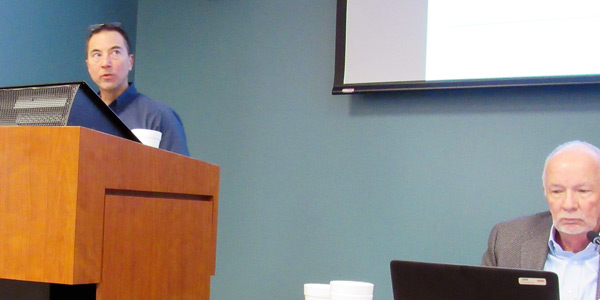By Amanda Durish Cook
CARMEL, Ind. — MISO’s South-to-Midwest transfer limit for the 2017/18 Planning Resource Auction will be 1,500 MW, an increase of more than 600 MW over last year’s auction because of a decrease in firm export and wheel-through reservations. The limit reflects the 2,500-MW cap prescribed by MISO’s settlement with SPP, reduced by 1,000 MW of reservations.
MISO is modeling two sub-regional resource zones for the 2017/18 PRA: MISO South (local resource zones 8, 9 and 10) and MISO Midwest region (zones 1-7).
The Midwest-to-South limit for the 2017/18 PRA will hold at 3,000 MW, with zero reservation offsets.
The RTO had previously predicted a 984-MW South-to-Midwest limit and a 3,000-MW Midwest-to-South cap. (See MISO to Use Same Sub-Regional Limit Rules for 2017/18 PRA.)
Aligning Attachment Y Process with PRA

MISO is looking to align its Attachment Y retirement process with the PRA timeline, implementing a recommendation from the Independent Market Monitor’s 2013 State of the Market Report.
At the Feb. 8 Resource Adequacy Subcommittee meeting, MISO adviser Joe Reddoch said the RTO is considering extending a cancellation period offered to retiring resource owners to align with the release of the upcoming PRA results to give owners a limited window to change their minds regarding retirement.
The Monitor recommended improving the alignment of the PRA and the retirement process so that a unit that has filed retirement plans can defer the retirement date if it clears in the auction. It also said system support resource (SSR) units should retain their interconnection service after their contracts end to allow the “broadest possible participation” in the PRA.
Reddoch said MISO has not yet settled on the length of the cancellation window extension.
The RTO is also contemplating removing the distinction between suspension and retirements in favor of a single deactivation status, Reddoch said. The change would eliminate “conflict between documented plans and the owners’ actual intentions,” he said. The change would simplify the process between temporary, uncommitted shutdowns and pending retirements, according to MISO.
RTO officials said the change would reduce uncertainty in planning processes, with baseline reliability projects being reprioritized if not needed because of a later rescission. Upgrades needed for new generation interconnections would be determined by the known plans of retiring generators.
The issue will be discussed at the Feb. 15 Planning Advisory Committee meeting and referred to the Steering Committee for assignment to a parent committee, Reddoch said.




